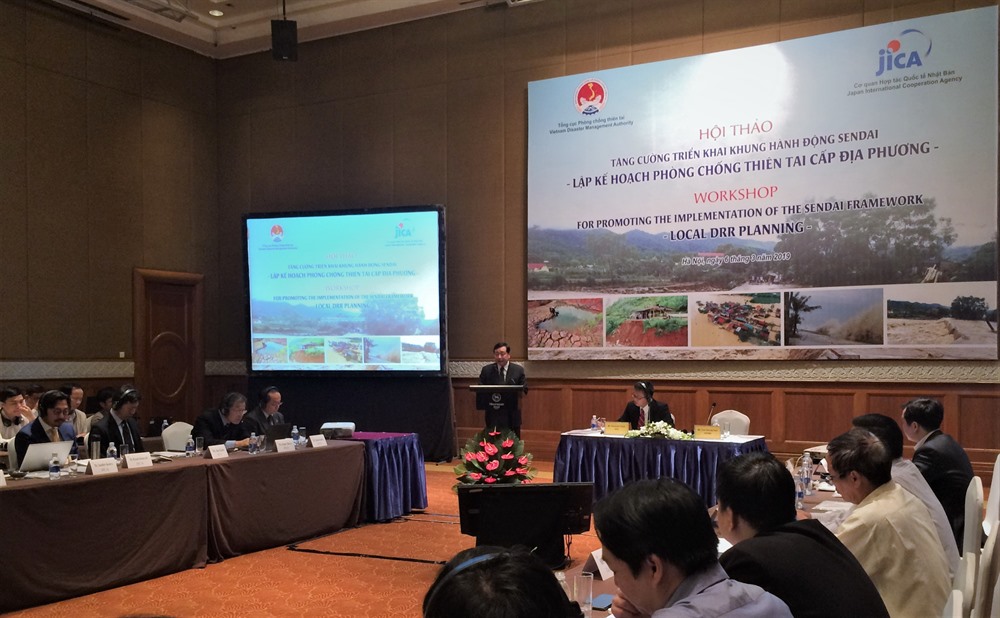 Society
Society

Localities have been urged to develop long-term disaster risk reduction plans to better cope with catastrophes, an official said yesterday (Mar 6) at a workshop held in Hà Nội.
 |
| Trần Quang Hoài, chief of the Việt Nam Disaster Management Authority under the Ministry of Agriculture and Rural Development, speaks at a workshop on the Sendai Framework held yesterday in Hà Nội. — Photo courtesy of JICA |
HCM CITY — Localities have been urged to develop long-term disaster risk reduction plans to better cope with catastrophes, an official said on Wednesday at a workshop held in Hà Nội.
Speaking at the workshop on the Sendai Framework, Trần Quang Hoài, chief of the Việt Nam Disaster Management Authority, said: “Việt Nam suffers an average annual loss of about 400 people who are killed or missing due to natural disasters, as well as losses of hundreds of millions of US dollars.”
Việt Nam has taken measures to cope with climate change and prevent natural disasters, especially to improve the legal framework on natural disaster risk reduction, in which the Central Steering Committee for Natural Disaster Prevention and Control plays a key role.
In 2017 the Government established the Việt Nam Disaster Management Authority under the Ministry of Agriculture and Rural Development to better manage disaster prevention from the central to local levels.
“The Sendai Framework was adopted by UN Member States in March 2015 at the Third UN World Conference on Disaster Risk Reduction in Sendai City in Japan,” he said. “The framework aimed to substantially reduce disaster risk and losses of lives, livelihoods and health and economic, physical, social, cultural and environmental assets of persons, businesses, communities and countries.”
In Việt Nam, disaster risk reduction is one of the urgent issues to be addressed.
The Law on Natural Disaster Prevention and Control requires local governments at all levels to develop local disaster risk reduction plans, he said.
However, many provinces have not developed effective disaster risk reduction plans, mostly due to a lack of money and human resources, as well as insufficient understanding of the purposes and significance of local disaster risk reduction planning, and lack of knowledge and experience in methods to develop them.
Kenichiro Tachi, advisor for water resources management and disaster risk reduction for the Ministry of Agriculture and Rural Development, said that Japan International Cooperation Agency (JICA) had provided support to Việt Nam through projects such as the “Project for Building Disaster Resilient Societies” from 2009 to 2016.
JICA has also committed to continue its support for disaster risk reduction in Việt Nam, he added.
The workshop was co-hosted by the Việt Nam Disaster Management Authority and the JICA’s office in Việt Nam.
The Sendai Framework for Disaster Risk Reduction 2015-2030 is the first major agreement of a post-2015 development agenda, with seven targets and four priorities for action.
The framework is a 15-year, voluntary, non-binding agreement which recognises that the State has the primary role to reduce disaster risk but that responsibility should be shared with other stakeholders, including local government, the private sector and others. — VNS




